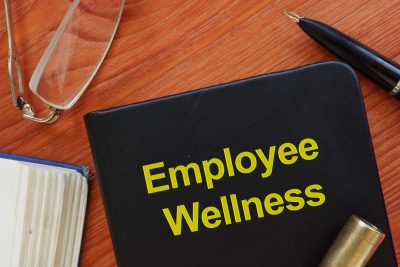Quick Look
- If your employer offers health insurance, sign up for a plan when you start your job (no need to wait for an open enrollment period).
- If you cannot get health insurance through a job, you’ll need to find a plan through the government health insurance marketplace, directly from an insurer, through a private enrollment site, a membership organization, or a health insurance agent.
- If you have a qualifying life event you can generally get insurance within 60 days of this event (but be sure to double check because it may be as few as 30 days).
- If you don’t have a qualifying life event you’ll need to sign up during open enrollment from November 1st – December 15th.
- Scroll down to the Action section to see final steps.
Contents
The 2019 Kaiser Family Foundation report on health insurance shows that roughly half of Americans (49.6%) get their insurance through an employer. For the other half, they have to purchase a plan separate from their job.
Employer Plans
 When you sign up for insurance through an employer it is part of a group plan and generally has a lower cost than a comparable individual plan. If your employer offers health insurance, you should talk to your manager or HR representative and make sure you sign up. Many employers subsidize the cost of the plans and this can make them an even better deal. Your monthly premiums will come right out of your paycheck.
When you sign up for insurance through an employer it is part of a group plan and generally has a lower cost than a comparable individual plan. If your employer offers health insurance, you should talk to your manager or HR representative and make sure you sign up. Many employers subsidize the cost of the plans and this can make them an even better deal. Your monthly premiums will come right out of your paycheck.
Non-Employer Plans
Even if you’re working a regular job, your employer may not offer health insurance. If you’re self-employed, out of work, or for another reason don’t have access to a traditional employer or “group” plan, you’ll need to find health insurance on your own.
Review the options below for ways to sign up.
- HealthCare.gov: Also known as the “Healthcare Exchange”, this site will ask for your zip code and then you can either browse plans directly on this site or you will be directed to your state’s specific site if it has one. The plans shown on the exchange include some (but not all) health insurance policies sold by private insurance companies but they will all offer the ten essential benefits previously mentioned. If your income is low enough, you may find you are eligible for a subsidy or tax credit which will effectively lower the cost of your insurance. You’ll also be able to see if you qualify for Medicaid or CHIP by completing the application on this site.
- Insurance Company: These are plans purchased directly from the insurers website. Plans that are indicated as being compliant with the Affordable Care Act will all have the same essential benefits previously mentioned. However if they’re being sold only on the insurers website (as opposed to also being on the government healthcare exchange) the insurer has some flexibility on how the plans are structured which may mean they can be sold at a lower price. Look for an insurer in your area (e.g. Aetna, United Healthcare, Blue Cross, Cigna, Humana, etc.) and do some comparison shopping between companies and compared to the exchange. Plans purchased from a private insurance company’s site will not allow you to qualify for a subsidy or tax credit.
- Private Enrollment Site: These sites may offer tools that help make comparing different plans – from many different insurers – easier for you. If you’re looking for coverage that is short-term or others that might not have all the “essential benefits”, these plans may be shown alongside ACA approved plans. While these plans may have fewer benefits, they may also have lower costs. Just make sure you understand the type of plan you’re signing up for. A few examples of these types of sites are EHealthInsurance.com, HealthSherpa.com, GetInsured.com, and many more.
- Health Insurance Agent/Broker: These are people who can help you find care and evaluate your needs. They are paid a commission by insurance companies when you use them to purchase a plan but you won’t have to pay for that and it won’t affect the cost of your policy. To find an agent you can use the “Find Local Help” tool directly from HealthCare.gov.
- Membership Organization: Some large professional organizations, unions, and academic organizations (e.g. colleges and universities) may allow you to get a health insurance plan at a group rate. In effect, this makes it similar to purchasing insurance through an employer. If you belong to any of these groups, or find one you can join (e.g. the Freelancer’s Union) it’s worth checking to see if this is an option.
Action

What better time to make note of key health insurance policy details than right when you sign up?
Once you’ve signed up for a plan, write down the plan details (use the list below as your guide) so you have a quick and easy reference. Then mark this task complete (available to logged in users).
- Monthly premium
- Deductible amount
- Typical coinsurance percentage
- Typical copayment
- Annual out-of-pocket maximum
(Now give yourself a pat on the back for getting through one of the most important but admittedly annoying parts of the Security tier!)
* Note: MoneySwell does not receive any commissions, payments, or any other benefits from the companies or organizations listed on this page. They are referenced for your educational purposes only. Learn more about MoneySwell’s business model and philosophy here. (Hint: MoneySwell is built for our users, not advertisers.)